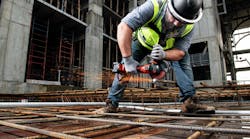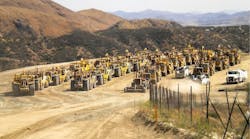A bill passed by the State Senate and Assembly should help break the logjam of 20,000 contaminated sites in New Jersey that need to be remediated before they can be redeveloped, said James A. Kosch, a veteran environmental attorney in LeClairRyan's Newark-based Tort Defense Group. The bill, which passed in the Assembly by a vote of 75-2 with two abstentions and in the Senate by a vote of 34-4, awaits the signature of Gov. Jon S. Corzine to become law.
"From the perspective of a firm that represents private landowners and industrial establishments, we think this is a step forward in public and private parties working together to address environmental concerns," said Kosch, who is also a director of the New Jersey State Bar Association's environmental law section. "It makes no sense to the state, its citizens or businesses to have these 20,000 sites unremediated."
The legislation would permit owners and developers of contaminated sites to hire private consultants to certify that their sites are clean following remediation. Supported by the business community, companion bills A-2962 and S1897 are aimed at moving projects forward by assisting the understaffed New Jersey Department of Environmental Protection on the certification end. The most serious cases of contamination would still be under the direct oversight of DEP, but a 13-member licensing board would certify qualified professional consultants to oversee the other sites.
"Property and business owners will be able to get their sites addressed in a more timely fashion," noted Kosch. "This legislation is consistent with the way other licensed professionals are dealt with in the state, and is a rational way of moving the cleanup approval process forward on the 20,000 sites that state government does not have the capacity to handle."
The New Jersey legislation is based on a program already in place in Massachusetts and, to a lesser extent, in Connecticut. The bill’s sponsors drafted the New Jersey legislation primarily based on the Massachusetts model.
"From what I’ve seen of the Massachusetts experience, this process works," Kosch said. "Securing cleanup approvals from qualified professionals is basically a technical function and is not all that different than relying on a licensed architect or engineer to build your building."



